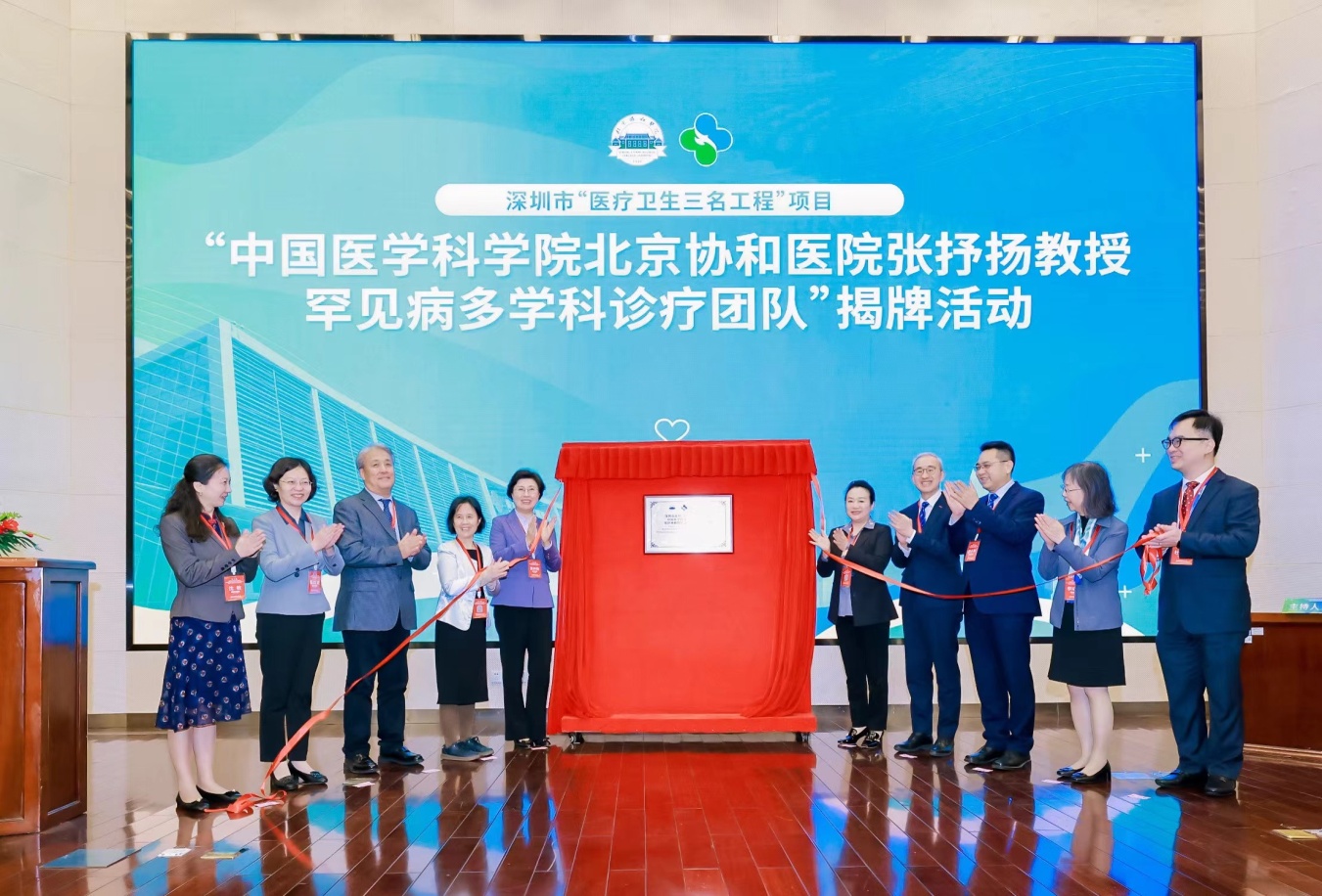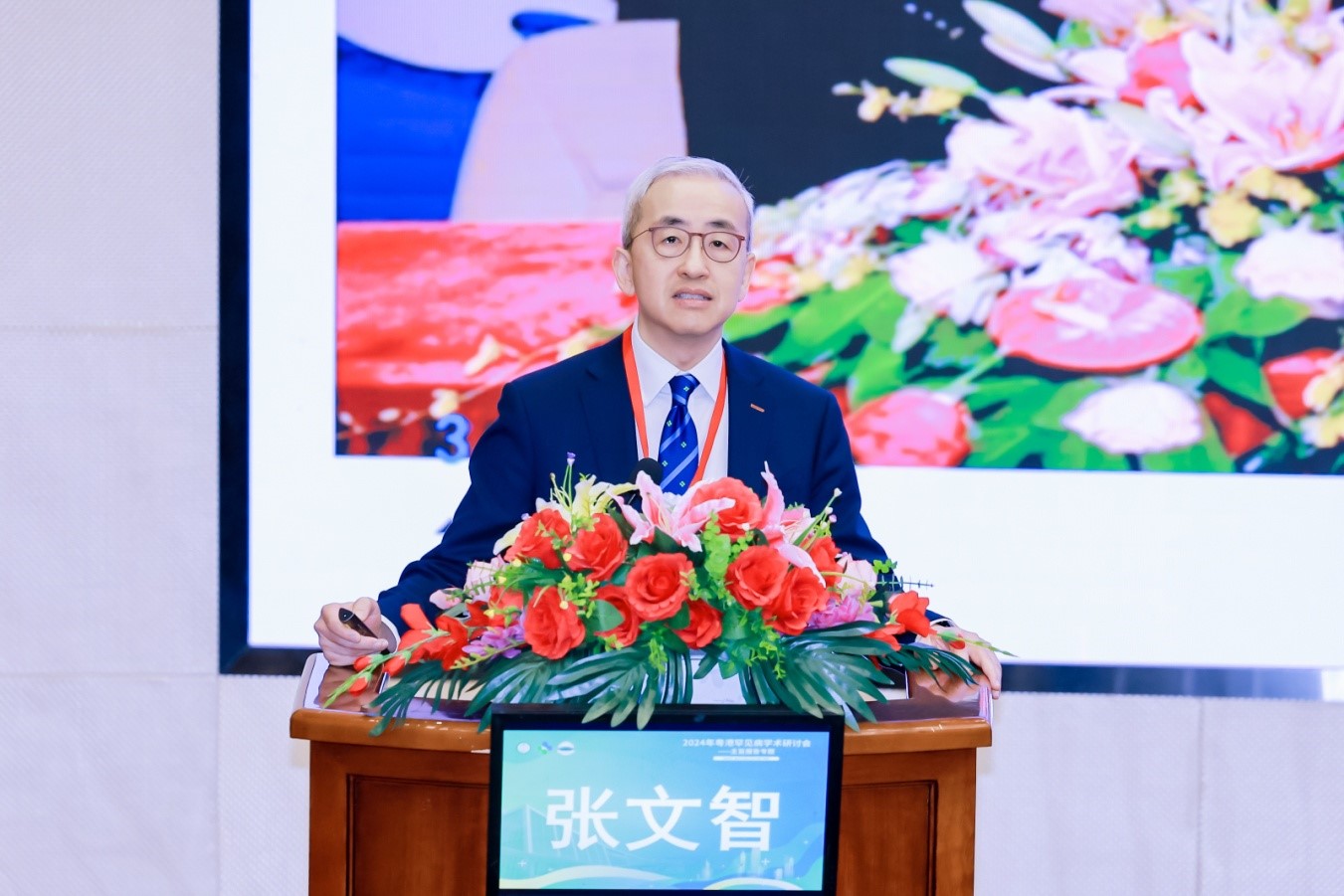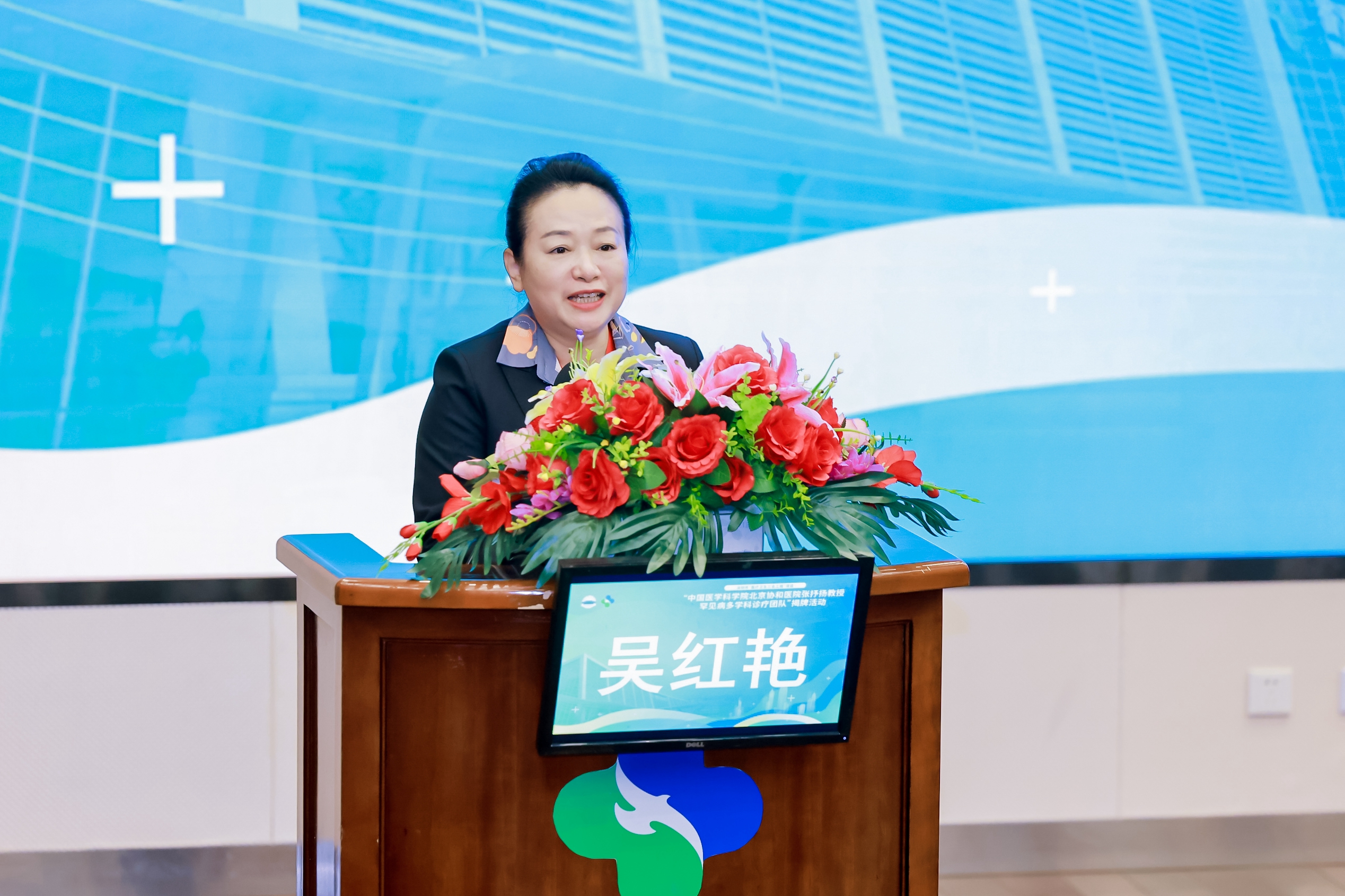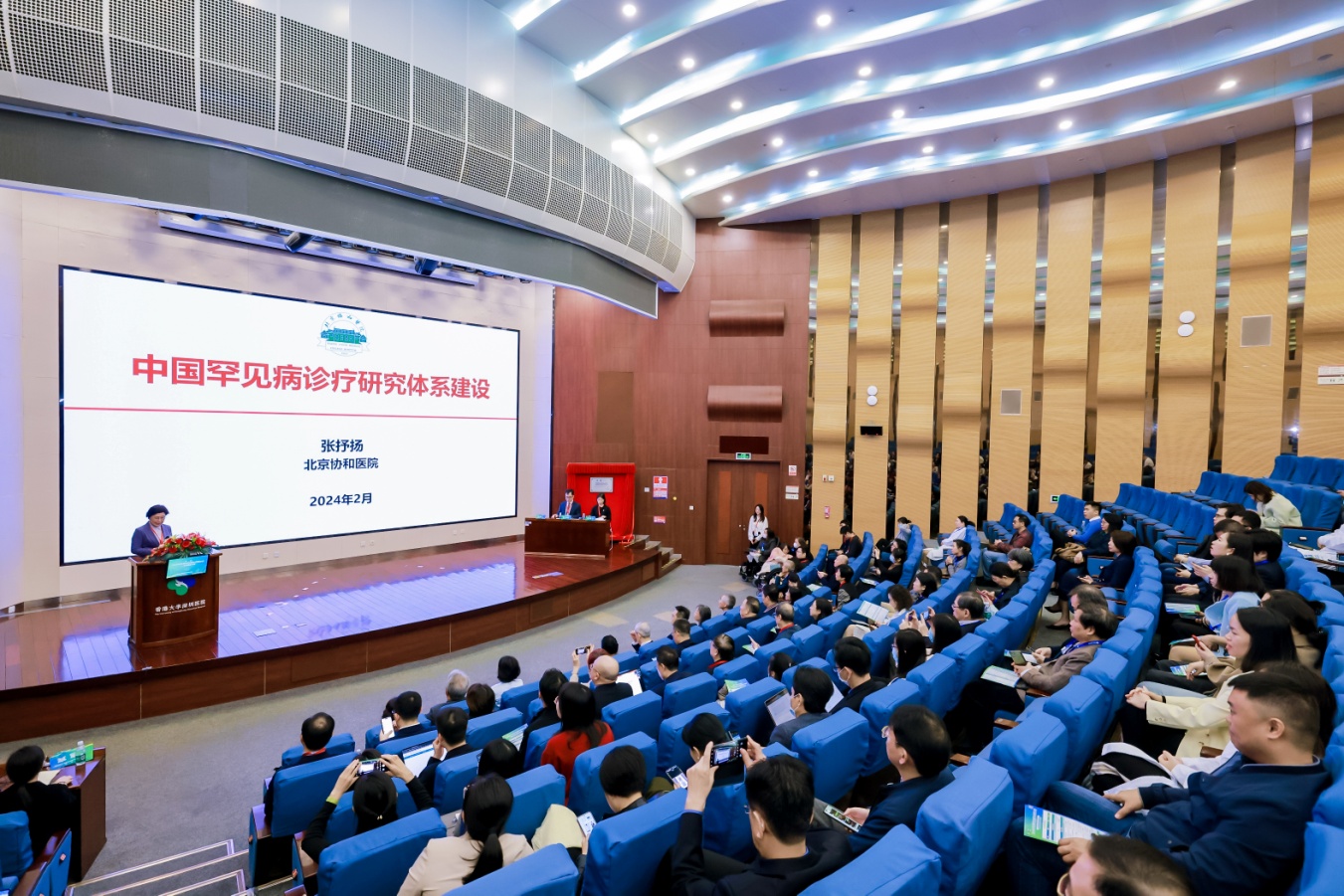On February 3, 2024, the “PUMCH MDT for Rare Diseases led by Professor Zhang Shuyang”, as part of the “Three-Excellent” Healthcare Program of Shenzhen (excellent physicians/disciplines, excellent hospitals and excellent clinics), was inaugurated at the University of Hong Kong - Shenzhen Hospital (HKU-SZH). This put into operation a southern-northern partnership for delivering medical care to patients with rare diseases regularly and conveniently.

PUMCH President Zhang Shuyang stated that the hospital had been committed to advancing the Healthy China initiative and, by extension, the healthcare for rare diseases nationwide. HKU-SZH is a key institution for rare diseases in Shenzhen and doubles as the Shenzhen Rare Disease Research Center. President Zhang celebrated this collaboration as an important milestone achieved through the joint efforts of both parties and a meaningful exploration in promoting rare disease prevention, diagnosis, and treatment in the Guangdong-Hong Kong-Macao Greater Bay Area and even nationwide. The two sides will work together in a complementary manner and stick to scientific and technological innovation as the driver for development, ensuring the execution of all collaboration matters with “PUMCH standards” and “PUMCH quality”.

HKU-SZH President Zhang Wenzhi expressed great honor in being able to introduce the PUMCH MDT for rare diseases. He hoped that under the leadership of PUMCH, HKU-SZH would play a greater role in improving healthcare for rare diseases in the Greater Bay Area and providing patients with more comprehensive diagnostic and treatment services.

Wu Hongyan, Director of the Shenzhen Municipal Health Commission, expressed the hope that the collaboration between HKU-SZH and the PUMCH MDT for rare diseases can substantially promote the development of all disciplines in Shenzhen, and make Shenzhen a medical center for rare diseases in the Greater Bay Area and even South China. She expected the collaboration to contribute to the high-quality development of healthcare in the city and deliver greater benefits to people in Shenzhen and the Greater Bay Area.

In 2014, the Shenzhen government launched the “Three-Excellent” Healthcare Program (excellent physicians/disciplines, excellent hospitals, and excellent clinics), aiming to continue to increase investment in healthcare and promote the expansion and balanced distribution of high-quality medical resources.
Moving forward, the PUMCH MDT for rare diseases will closely collaborate with HKU-SZH. Benchmarking against the criteria of the national medical center for rare diseases and the specialty requirements and development planning of HKU-SZH, they will cooperate on clinical, teaching and research fronts, among others, to turbocharge talent development and yield advanced research outcomes. This will further boost the specialty of rare diseases at HKU-SZH on its journey to become a domestically leading and internationally renowned medical center for rare diseases integrating clinical research and translational medicine. Such efforts will certainly promote the high-quality development of HKU-SZH and the general healthcare provision in Shenzhen, improving the well-being of people in Shenzhen and even the Greater Bay Area with better services.

On February 2, the PUMCH MDT for rare diseases had in-depth discussions with the core members of their HKU-SZH counterparts from such departments as orthopedics, neuromedicine, cardiac and vascular, pediatrics, rheumatology, hematology, and dermatology. Specialty heads from both sides discussed cooperation matters and directions to pursue and fleshed out an overall plan.
On February 3, the Rare Disease Branch of the Guangdong Medical Association, HKU-SZH, and PUMCH jointly organized the 2024 Guangdong-Hong Kong Rare Disease Academic Forum. The PUMCH MDT for rare diseases and experts from rare disease diagnosis, treatment, and research centers from the Chinese mainland and Hong Kong shared the latest advances in clinical practice and research concerning rare diseases.
Text and pictures adapted from coverage by Hong Kong-Shenzhen Medical Information (gangshen yixin)
Edited by Yan Xiaobo
Translated by Liu Haiyan
Reviewed by Wang Yao
